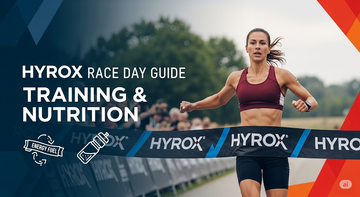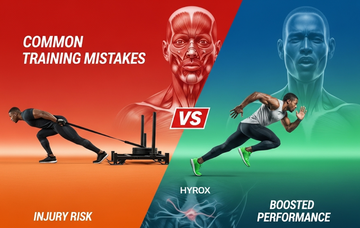Some vitamins are essential nutrients that participate in cell structure, energy metabolism as well as all your body activities.
If you eat a balanced diet with fruits, vegetables, protein, fiber, and other fortified foods, you don't need to worry about health uncertainties caused by a lack of nutrients and vitamins. Unfortunately, if you have a habit of eating snacks or favoring industrial foods, you may have the potential to suffer from vitamin deficiency. That prevents your body from staying healthy and functioning correctly.
The Role Of Vitamins
Vitamins are organic compounds that cannot be synthesized by human and animal cells (except vitamin D). They present in food in small amounts but are essential for several metabolic reactions that help maintain your body’s normal growth and life. Therefore, a deficiency will cause a specific disease.

Here are the vitamins and nutrients you need to fulfill
1. Beta carotene (Vitamin A)
Beta carotene is an antioxidant that converts to vitamin A in the body. Vitamin A is widely known for its importance to vision. It also supports the immune system, strengthens the body's resistance, protects against oxidation, etc.
Vitamin A is found in both plant and animal foods. Plant sources include green leafy vegetables and yellow and orange fruits and vegetables. Animal sources contain liver, salmon, and whole milk. Vitamin A is also added to fortified cereals and available as a standalone supplement. However, some studies show that excessive absorption of beta carotene in the supplement form might increase lung cancer risk, especially for smokers. Hence, according to nutrition recommendations, men need 3,000 IU, and women can have 2,300 IU of vitamin A daily.
2. Calcium
Calcium is a mineral that plays a vital role in the human body. In the body, 99% of calcium exists in bones, teeth, nails, and 1% in blood. Calcium combines with phosphorus which is the basic building block of bones and teeth, making bones and teeth strong. Besides, calcium is also needed for nerve-muscle activity, heart function, cell metabolism, and blood clotting.
Calcium-rich foods are shrimp, crab, fish, snails, sesame, soybeans, wood ear, vegetables, and dairy products. Milk and dairy products such as yogurt, cheese are excellent sources. You should provide high-quality and easily absorbed protein, calcium, vitamins, and minerals. Besides, calcium-fortified foods can be used. The recommended amount of calcium is no more than 500 mg of calcium. You can take vitamin D at the same time to improve calcium absorption, too.
3. Vitamin D
Research done over the past decade suggests that vitamin D, besides keeping bones strong, may play a key role in preventing and treating some serious long-term health problems such as osteoporosis, heart disease, certain cancers and multiple sclerosis.
Vitamin D is both a nutrient in the food and a hormone that your body makes when exposed to the sun. It is very important for bone health because one of its primary functions is to promote the body's absorption of calcium.
There are very few foods naturally rich in vitamin D. The best sources of vitamin D in the diet are fatty fish such as salmon, tuna, and mackerel; fortified dairy products, and breakfast cereals.
4. Folic Acid
Folic acid is an essential vitamin B for pregnant women and women planning to have children. This nutrient helps prevent spinal tube defects in the fetus. In addition, folate also reduces the risk of breast cancer, cardiovascular disease, anemia and keeps your mind sensitive no matter how old you are.
You can get folate through whole grains, citrus fruits, dark green leafy vegetables, legumes, and bread. If your diet often includes these foods, no supplements need to be taken. The appropriate folate level is 400 mcg per day for women and 600 mcg for women or caregivers.
5. Iron
Adequate iron intake to prevent iron deficiency anemia. Supplement iron through green leafy vegetables, nuts.
Iron is crucial for the oxygen transport in the blood, which is essential to get energy from nutrients. Some specific foods naturally contain this essential vitamin, such as lean meats, seafood, nuts, seeds, and fortified foods.
Iron deficiency will cause anemia, hair loss, headache, and dizziness. That's why people have to supply enough iron to stay healthy, especially groups at risk of iron deficiency including pregnant women, infants, young children, teenage girls, and premenopausal women. If your iron amount in the blood is low, your doctor may recommend iron supplements.
6. Potassium
Potassium reduces the risk of stroke and cardiovascular diseases. Potassium works with sodium to regulate a balanced flow of fluids in the body. However, many people get too much sodium (salt) and not enough potassium in their diet.
Foods high in potassium are bananas, green leafy vegetables, raisins, and oranges.
The daily potassium requirement is 4,700 mg and 5,100 mg for pregnant women. Be aware of potassium absorption in the elderly and people with kidney stones.
7. Vitamin K
Vitamin K is a group name for several compounds that boost your body to make proteins necessary for blood clotting. Lack of vitamin K makes blood difficult to clot, resulting in wounds bleeding continuously. Because of this role, vitamin K is used to reverse the anticoagulant effects of blood thinners when injected too much. Vitamin K is also given to infants who do not have enough natural vitamin K to prevent blood clotting problems.
Vitamin K can be found in green leafy vegetables, cruciferous vegetables (like broccoli or cabbage), fish, liver, meat, and eggs. Besides, you can take vitamin K supplements such as Amazing Grass Organic Kale Powder if you consume less than 120 mcg per day in men and 90 mcg in women.
8. Vitamin C
Vitamin C promotes immunity in the body, prevents cardiovascular disease, eye disease, and supports pregnant women's health along with your skin health. Vitamin C also helps shorten the time of colds, improves your shiny skin and healthy eyes.
As a water-soluble vitamin, vitamin C is found in citrus fruits, strawberries, broccoli, and green peppers. It is not difficult to meet daily needs (90 mg in women and 75 mg in men).
9. Vitamin E
Vitamin E is a powerful antioxidant that protects cells from free radicals from the inside and outside. This is why cosmetic manufacturers add this vitamin to skin care and protection products.
Vitamin E also helps strengthen the immune system as well as slows down macular degeneration. You can get the recommended daily intake of vitamin E by eating various foods, such as vegetable oils, nuts, green vegetables, and nutritious grains. Do not consume more than 33 IU of synthetic vitamin E per day as it can lead to the risk of a brain hemorrhage.
However, there is a small line between getting enough of these nutrients (good for health) and too much (possibly harmful). Therefore, eating a healthy diet is still the best way to get all the vitamins and minerals your body needs.
Related Articles:










